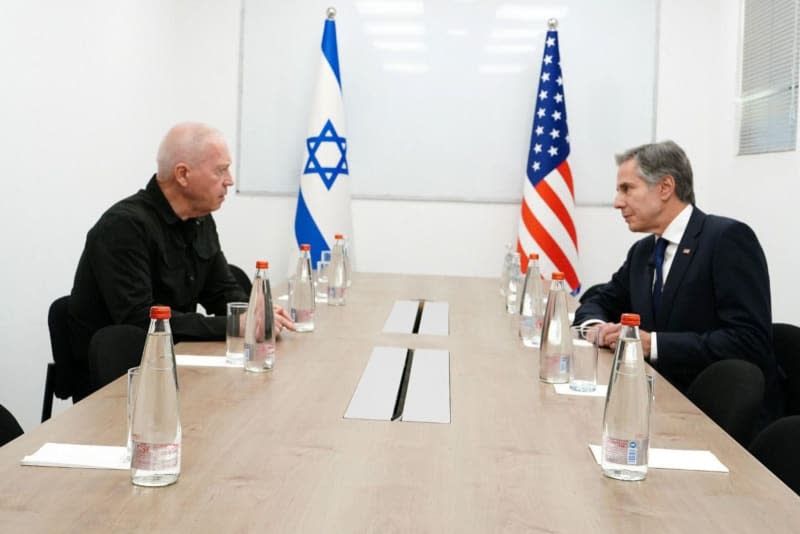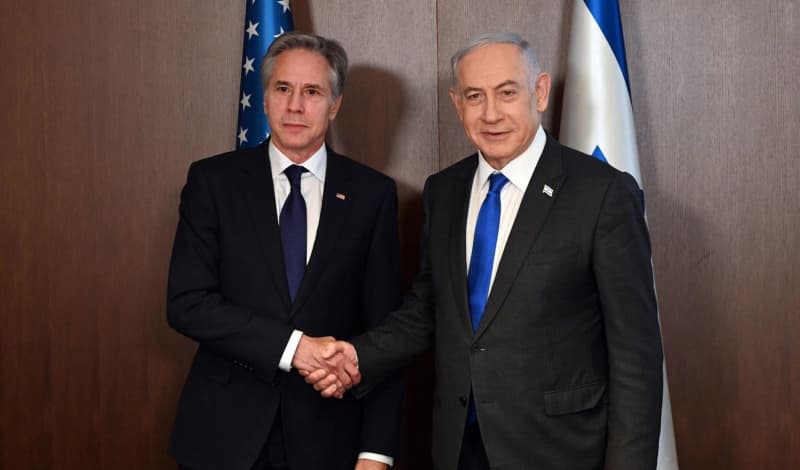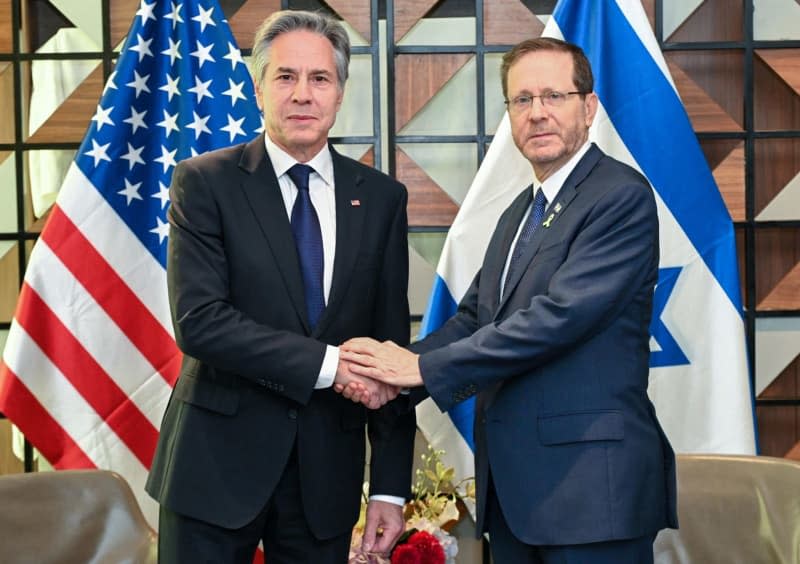Blinken tells Hamas time for 'haggling' over truce deal has ended

- Oops!Something went wrong.Please try again later.
- Oops!Something went wrong.Please try again later.
- Oops!Something went wrong.Please try again later.
- Oops!Something went wrong.Please try again later.
US Secretary of State Antony Blinken, in Israel for talks with Prime Minister Benjamin Netanyahu and other leaders, expressed his determination to secure an immediate ceasefire in Gaza as part of a deal that would see more hostages held by Hamas released.
"Israel has made very important compromises in the proposal that’s on the table," Blinken said after meeting Netanyahu.
"Hamas has to decide whether it will take this deal and actually advance the situation for the people that it purports to care about in Gaza. There is no time for delay; there is no time for further haggling," the top US diplomat said.
Blinken also met with Israeli President Isaac Herzog and Defence Minister Yoav Gallant for talks that focussed on getting more humanitarian aid into the Gaza Strip.
Israel's army announced on Wednesday that the Erez border crossing, located at Gaza's northern end, had been opened to allow 30 lorries carrying food and medical supplies from Jordan.
Relief supplies arriving by ship at the Israeli port of Ashdod are now to be transported directly to the nearby Erez border crossing, Gallant said on Wednesday evening.
Gallant and Blinken visited the Kerem Shalom crossing, which lies on the southern end of the coastal strip, as well as Ashdod, where the US secretary of state delivered remarks.
Blinken said the aid via Erez was a "very important" development in reaching hard-hit north of the strip, where food shortages are severe. He also said the US is "probably a week away" from having its own maritime aid corridor - including a floating pier off Gaza - being operational.
Israel has announced a rapid start to the controversial ground offensive in Rafah, the last Hamas bastion on the border with Egypt, if no agreement with Hamas is reached.
However, Netanyahu has also made it clear that a Rafah offensive is not dependent on a deal.
"We will go into Rafah and smash the Hamas battalions there - with or without a deal," Netanyahu said at a meeting with relatives of Israeli hostages and fallen soldiers on Tuesday, according to his office. "The idea that we will stop the war before all its objectives have been achieved is out of the question."
Netanyahu is under strong pressure from his far-right coalition partners, who made themselves heard once again on Wednesday with comments from a right-wing minister who said getting back "22 or 33 people" is not worth it, sparking outrage.
Minister Orit Strock from the Religious Zionism party said Israel's war aims should not be sacrificed for the return of a small number of hostages.
She spoke of a "terrible deal" that also jeopardized the hostages who were not part of it. The war aims could not be "thrown in the bin in order to save 22 or 33 people," she said.
Israeli opposition leader Yair Lapid responded on X, formerly Twitter, that a "government with 22 or 33 extremist coalition members has no right to exist."
It is believed that around 129 people who were kidnapped on October 7 remain in Gaza, including many that Israel has concluded are no longer alive.
As the Wall Street Journal reported, citing Egyptian officials, the proposal for an agreement envisages two stages.
The first stage would involve the release of at least 20 hostages within a three-week ceasefire in exchange for an unspecified number of Palestinian prisoners. The duration of the ceasefire could be extended by one day for each additional hostage, it said.
A second stage would include a 10-week ceasefire in which Hamas and Israel could agree on a more extensive release of hostages and a longer pause in fighting that could last up to a year.
However, Hamas has so far insisted on a complete end to the war, which Israel rejects
Both sides are not negotiating directly, but via the mediators Egypt, Qatar and the US.
"We’re determined to get a ceasefire that brings the hostages home, and to get it now. And the only reason that that wouldn't be achieved is because of Hamas," Blinken said earlier in Tel Aviv.



